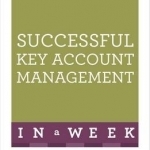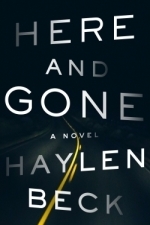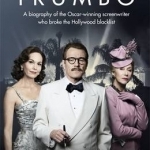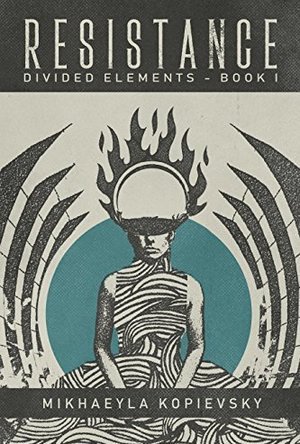Contemporary Central American Fiction: Gender, Subjectivity and Affect
Book
This book is a series of original, critical meditations on short stories and novels from Central...

magicpin - cashback & deals
Lifestyle and Social Networking
App
* magicpin is the best free app for discovering and earning great cashback and free recharge on your...

Children's Bible Games for Kids, Family and School
Book and Education
App
Engage your kids and family with the Bible with funny and faithful Games & Activities. • 300 Games...

Marriott International
Travel and Lifestyle
App
The Perfect Travel Companion™ Designed and developed for Marriott Rewards® members, the Marriott...
Jamie (131 KP) rated Here and Gone in Books
Jul 26, 2017
The narrative swaps between characters throughout the story, sometimes swinging into the main two character’s pasts to flesh out their personalities. I really liked Danny, though I’ll admit that he seemed like a bit of an Asian stereotype to me, and being Asian American myself I wasn’t sure how I felt about it. His role in the story was cool but also seemed a little out of place. Audra I wish I could say that I liked her more, but her attitude in some of the flashback chapters really bothered me. My heart did break for her character, however, stuck in an abusive marriage with an enabler, with several chapters detailing her struggle with drug addiction.
I love the serious amount of woman power in this book that highlights the importance of female relationships. There are just certain things that many women know and understand about each other. This book was a heartfelt reminder about how vital it is for women to lift each other up, rather than tearing each other down. It was almost always female characters that would see what was happening to Audra and helped when she needed it the most. This was a major highlight for me in the story.
On the other hand though, I had to cut the rating down a little bit due to some pretty glaring plot holes that kept making me stop and ask my husband about law or the standard policies that are followed in any investigation. There were little things I noticed that just didn’t seem right and it would pull me out of my immersion in the novel.
Maybe it’s just me, but I would imagine that if a suspect in a missing person’s case were to implicate someone, even if it was a member of law enforcement, of abducting the kids and threatening her into taking the blame, wouldn’t the FBI be at least mildly suspicious? Question the officers involved, perhaps monitor their activity, separate them from the case, or put them on administrative leave? It would only make sense to me that the officers in question are too close to the case and should be taken off of it, but that wasn’t what happened. One cop had full access to the suspect, to police resources, and was still involved in the investigation. The other cop, well, nobody seemed to care about her one bit, or really noticed her absence. In fact, the FBI in general seemed pretty impotent in this book and that just didn’t seem normal to me.
All that aside, I really enjoyed this book. I was completely absorbed in the story from the first page and I couldn’t put it down, devouring it quickly over a period of about two days. I’ll definitely be checking out some more of the author’s work in the future.
Nominated for an Oscar, BAFTA and Golden Globe,Trumbo is a recent film based on the original biography Dalton Trumbo written by Bruce Cook in 1977. Its adaptation to film provided the perfect opportunity to republish this extremely well researched book. With a forward written by John McNamara, the screenwriter of the motion picture, the story of Dalton Trumbo’s life is just as intriguing as it was almost forty years ago. But who is Trumbo?
If, like me, you have never heard of Trumbo or even the infamous “Hollywood Ten,” it may take a while for it to become clear as to why it was worth Cook’s time to produce a book about the man. Dalton Trumbo was a well-known screenwriter of films such as Papillon, Lonely Are The Brave and Roman Holiday as well as author of the novel Johnny Got His Gun. However these are not all he is famous for. During his life, Trumbo became a member of the Communist Party, which Hollywood branded as an Un-American Activity and thus blacklisted him, as well as other screenwriters, directors and actors. Ten of these men, Trumbo included, were imprisoned for their political beliefs – yet nothing prevented Trumbo from continuing his fairly successful career.
Interestingly, Cook begins the book with the final stages of Trumbo’s life. At time of writing Trumbo was still alive, although rather poorly. After contracting lung cancer, having a lung removed, and suffering a heart attack, Trumbo was a very sick man; nonetheless he was still enthusiastic about being interviewed and telling his personal story.
From his childhood, to his evening shifts at a bakery, Cook details Trumbo’s early life, emphasizing the hard upbringing he had before he found himself in the world of Hollywood. Although roughly 75% of the book focuses on Trumbo’s career, Cook highlights Trumbo as a family man, with both a wife and three children who he absolutely adores.
Cook constantly refers to the Hollywood Ten as a concept that the reader should already be familiar with. Granted, someone who picks up this book is more likely to do so having a prior interest in the central figure, and thus already know about his background; however those ignorant on the topic eventually gather a better understanding on the topic once reaching the relevant chapters. It also becomes clearer why Trumbo is worth reading/writing about – he may have been blacklisted, but he managed to break through all the barriers and reinstate his name and many others.
Reading this half a century after the event, it seems strange that Trumbo was imprisoned. He had not done anything intrinsically wrong, it was purely prejudice against his political beliefs that got him into the mess he found himself. But when you consider the events of the time: World War Two, the Cold War, the Korean War, and Vietnam; it is understandable why many feared those who claimed to be Communists.
Cook’s narrative does not flow as a story, and much of it is broken up with quotes from various people he interviewed. The timeline jumps about between past and present (1970s), which occasionally gets a bit confusing. A large part of the book is spent analyzing many of Trumbo’s works – both for screen and written formats – which, unless you have a particular interest, can be a little tedious.
It has got to be said that Bruce Cook was an exemplary writer with a great eye for detail. He did not jump to conclusions or only talk about things from his point of view. Instead he interviewed, what seems like, everyone who ever met Trumbo, and based his writing on fact backed up with numerous quotes and citations.
This edition of Trumbo contains a selection of photographs taken on the set of the movie. Disappointingly it does not contain any of Trumbo himself – you would think that some photos could have been tracked down!
Trumbo is not a book that will interest everyone. Most people today – particularly in England – will probably be unaware of who Dalton Trumbo was, and thus would only seek out this publication due to a fascination with film production. I have not seen the film, but after reading this and discovering how books go from novels, to screenplays to moving image, it would be interesting to find out which parts of Trumbo’s life made it onto the big screen.
<i>I received this book for free through Goodreads First Reads.</i>
Nominated for an Oscar, BAFTA and Golden Globe, <i>Trumbo</i> is a recent film based on the original biography <i>Dalton Trumbo</i> written by Bruce Cook in 1977. Its adaptation to film provided the perfect opportunity to republish this extremely well researched book. With a forward written by John McNamara, the screenwriter of the motion picture, the story of Dalton Trumbo’s life is just as intriguing as it was almost forty years ago. But who is Trumbo?
If, like me, you have never heard of Trumbo or even the infamous “Hollywood Ten,” it may take a while for it to become clear as to why it was worth Cook’s time to produce a book about the man. Dalton Trumbo was a well-known screenwriter of films such as <i>Papillon, Lonely Are The Brave</i> and <i>Roman Holiday</i> as well as author of the novel <i>Johnny Got His Gun</i>. However these are not all he is famous for. During his life, Trumbo became a member of the Communist Party, which Hollywood branded as an Un-American Activity and thus blacklisted him, as well as other screenwriters, directors and actors. Ten of these men, Trumbo included, were imprisoned for their political beliefs – yet nothing prevented Trumbo from continuing his fairly successful career.
Interestingly, Cook begins the book with the final stages of Trumbo’s life. At time of writing Trumbo was still alive, although rather poorly. After contracting lung cancer, having a lung removed, and suffering a heart attack, Trumbo was a very sick man; nonetheless he was still enthusiastic about being interviewed and telling his personal story.
From his childhood, to his evening shifts at a bakery, Cook details Trumbo’s early life, emphasizing the hard upbringing he had before he found himself in the world of Hollywood. Although roughly 75% of the book focuses on Trumbo’s career, Cook highlights Trumbo as a family man, with both a wife and three children who he absolutely adores.
Cook constantly refers to the Hollywood Ten as a concept that the reader should already be familiar with. Granted, someone who picks up this book is more likely to do so having a prior interest in the central figure, and thus already know about his background; however those ignorant on the topic eventually gather a better understanding on the topic once reaching the relevant chapters. It also becomes clearer why Trumbo is worth reading/writing about – he may have been blacklisted, but he managed to break through all the barriers and reinstate his name and many others.
Reading this half a century after the event, it seems strange that Trumbo was imprisoned. He had not done anything intrinsically wrong, it was purely prejudice against his political beliefs that got him into the mess he found himself. But when you consider the events of the time: World War Two, the Cold War, the Korean War, and Vietnam; it is understandable why many feared those who claimed to be Communists.
Cook’s narrative does not flow as a story, and much of it is broken up with quotes from various people he interviewed. The timeline jumps about between past and present (1970s), which occasionally gets a bit confusing. A large part of the book is spent analyzing many of Trumbo’s works – both for screen and written formats – which, unless you have a particular interest, can be a little tedious.
It has got to be said that Bruce Cook was an exemplary writer with a great eye for detail. He did not jump to conclusions or only talk about things from his point of view. Instead he interviewed, what seems like, everyone who ever met Trumbo, and based his writing on fact backed up with numerous quotes and citations.
This edition of <i>Trumbo</i> contains a selection of photographs taken on the set of the movie. Disappointingly it does not contain any of Trumbo himself – you would think that some photos could have been tracked down!
<i>Trumbo</i> is not a book that will interest everyone. Most people today – particularly in England – will probably be unaware of who Dalton Trumbo was, and thus would only seek out this publication due to a fascination with film production. I have not seen the film, but after reading this and discovering how books go from novels, to screenplays to moving image, it would be interesting to find out which parts of Trumbo’s life made it onto the big screen.
Ross (3284 KP) rated Resistance in Books
Sep 20, 2018
Anaiya, one such peacekeeper, is tasked with finding and infiltrating a group of rebels who have started painting the word "resistance" on walls. In order to infiltrate them, she has to undergo a new untested treatment that tries to change her class from fire to air. Thereafter the tale is a pretty standard one of intrigue, plotting and red herrings.
For me the ideas behind the world were interesting, but not very well explained or explored early on. I realise with a book like this any attempt to do so would jar with the atmosphere it is trying to get at, but there are ways to deliver the information needed.
The storyline was pretty much paper-thin and sacrificed in order to have some lengthy, overly descriptive poetic narrative (for example at least 6 pages of the book is devoted to blow by blow accounts of pool matches). The supposed revelation at the end was such an obvious anti-climax as to be ridiculous. I took it to be a symbol of how Anaiya's treatment warped her judgement of who the main suspect is, but it was delivered as a big revelation.
The use of technology in sci-fi always annoys me - new tech that is not described and overly used, with a ridiculous name (a wristplate that can immediately tell you what substances are in your blood as well as heart rate etc, and also be used to download music, play music, communicate, pay for things etc etc).
Similarly, the plot to reveal the head of the resistance hinged on the use of some new technology invented by a member of the resistance itself. This was so flimsy as to be laughable. Also, the fact that a heavy-handed police force like the peacekeepers would look for such tenuous proof of the leadership of the resistance before acting is just plain wrong. The first few chapters, and some of the conversations Anaiya has after her change, serve to show how heavy-handed they are, and any hint of someone's involvement in such treasonous activity would result in swift action.
Overall, the book is atmospheric and interesting but quite badly executed.
And the word "trajectory" is massively overused and at times wrongly used.

Successful Key Account Management in a Week: Be a Brilliant Key Account Manager in Seven Simple Steps
Book
Key account management just got easier 'This little book is a real gem' Professor Malcolm McDonald...




